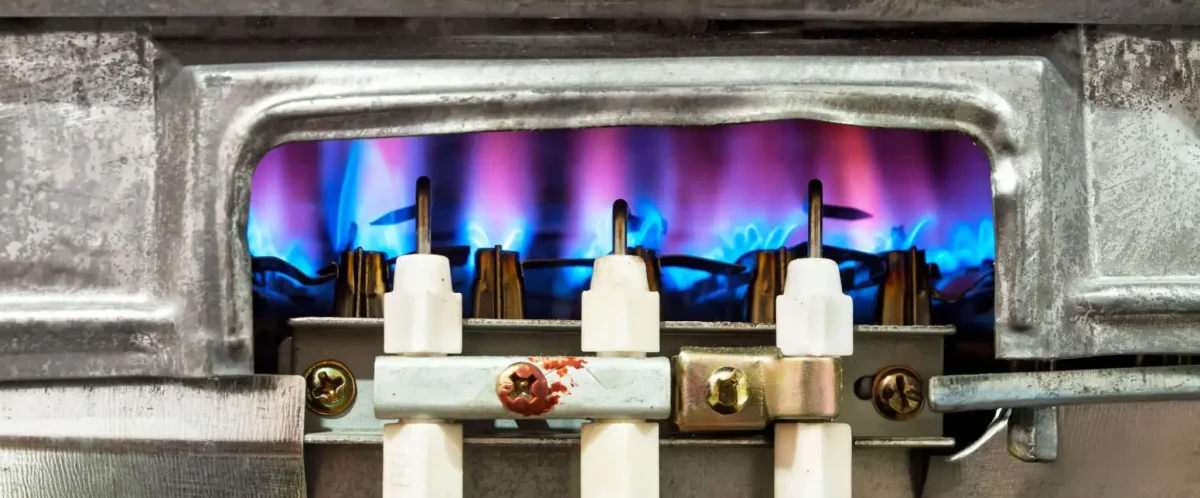The fall season brings with it many incredible changes. If you haven’t already, you’ll soon notice the leaves turning color and falling to the ground. The temperatures have lowered, leading to chilly mornings, slightly warm afternoons, and crisp evenings.
And the cooler the temperature, the likelier you are to crank up your furnace.
But if you hear odd noises, feel temperature inconsistencies, or notice other problems, you may wonder if your furnace needs a simple repair or a total replacement.
Read our guide below to determine which solution is the best option for you. We’ve listed a few steps you can take before you call an HVAC professional.

1. Discover Small Issues
Does your furnace make odd noises when it kicks on, or do you feel low airflow coming from your vents? If you experience any issues with your furnace, check the appliance for small issues. Problems as small as dusty vents or dirty air filters can inhibit your furnace’s performance.
Dirty filters and dusty vents can easily be cleaned, but other small issues such as cracked belts or a faulty blower can cause your heater to stop working as well as it should. Inspect your furnace and discover small issues like the ones mentioned above. If you do see minor problems, simple repairs can easily rectify the situation. Furnace Needs Repairs or Replacing.
2. Determine the Age of Your Furnace
All furnaces have an expected lifespan. If your furnace is more than 15 years old, you should replace it for a newer, more energy-efficient model. However, if the furnace is 10 years old or less, then scheduling repairs is probably the most affordable option for you.
3. Check Your Records for Previous Repairs
In addition to checking your furnace’s age, you’ll also want to take note of any repairs performed on the appliance. Intermittent repairs over time are normal for any furnace. However, if you have to schedule repairs frequently, your furnace may be approaching the end of its life.
Keeping and consulting your personal records can help you determine if the next issue that pops up requires a repair or if you should replace the furnace entirely. Talk to a heating professional to determine if your year, make, and model of furnace has required an excessive number of repairs in the last year. Furnace Needs Repairs or Replacing.
4. Look at Your Utility Bills
When your furnace functions properly, your utility bills should stay fairly constant, unless the temperatures take a sudden dip during the cold months. If your utility bills consistently rise as the season passes, your furnace may be in need of repairs or a replacement.
Compare your current utility bills to bills from past seasons. If the current bills are higher than average, have an HVAC specialist inspect your appliance to see what the source of the problem is. Sometimes, a faulty thermostat or worn-down part could cause your furnace to work harder than it should.
If the cause of the problem is easy to fix, a repair is likely your best option. However, if the cause of the issue is more serious (for example, if several major components have broken beyond repair), you may need to replace the entire appliance.
5. Listen for Noises
Usually, when your furnace starts making loud noises, you’ll need to replace it entirely. You could repair or replace small parts gradually, but noises typically indicate that the furnace will stop working completely in a year or two.
Listen for noises like rattling, banging, squealing, and popping. If you hear your furnace kick on or blow too loudly and for too long, talk to a professional about replacing the appliance with a new one. Furnace Needs Repairs or Replacing.
6. Consult With Professionals About the Cost
Depending on the issue you need to fix, a repair may cost more than a replacement, and vice-versa. Consult with your HVAC technician to determine the overall cost of a repair and a replacement. If the cost for a repair is cheaper than a replacement, opt for that solution. If the cost for a replacement is ultimately cheaper than a repair, choose that option. Furnace Needs Repairs or Replacing.
7. Look to Your Health
Fall and winter are prime seasons for getting ill. While you may take great efforts to keep you and your family healthy, your furnace may mitigate those efforts. As previously mentioned, your filters may be dirty or your vents dusty. As a result, debris can circulate through your home. You and your loved ones can breathe in allergens or germs that can make you sick. Furnace Needs Repairs or Replacing.
Clean your vents and replace your filters. If your health improves, perform this minor maintenance every few months to stay healthy.
If you’ve taken any of the above steps and noticed a problem with your furnace, contact the HVAC professionals at Glendale Heating and Air Conditioning. Let us know what issues you’ve heard or seen, and we’ll send an expert to investigate. Once we diagnose the issue, we’ll work with you to make the proper repairs or to completely replace your furnace.
We can even provide you with at-home maintenance tips so you can make the most out of your heating system until our next visit. Furnace Needs Repairs or Replacing.


